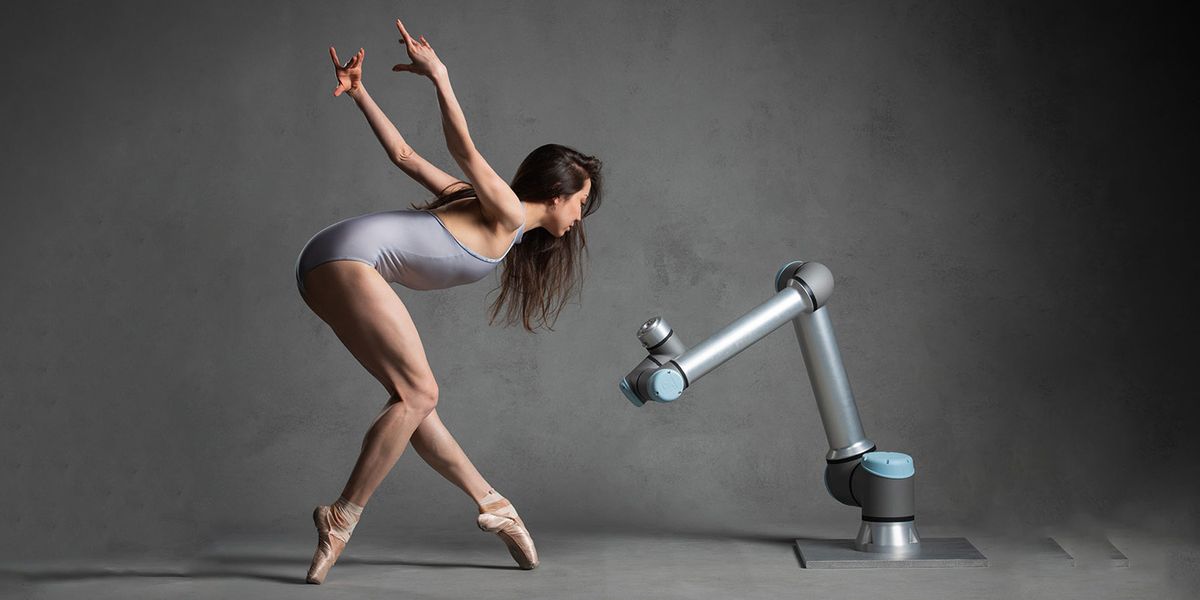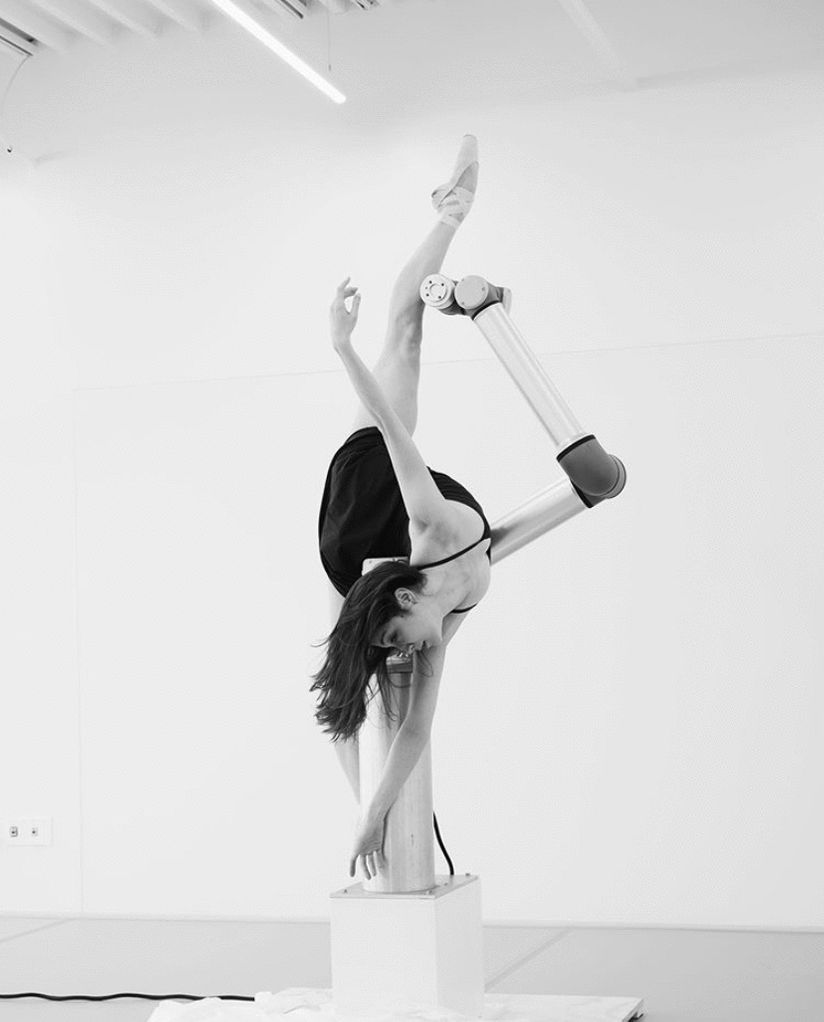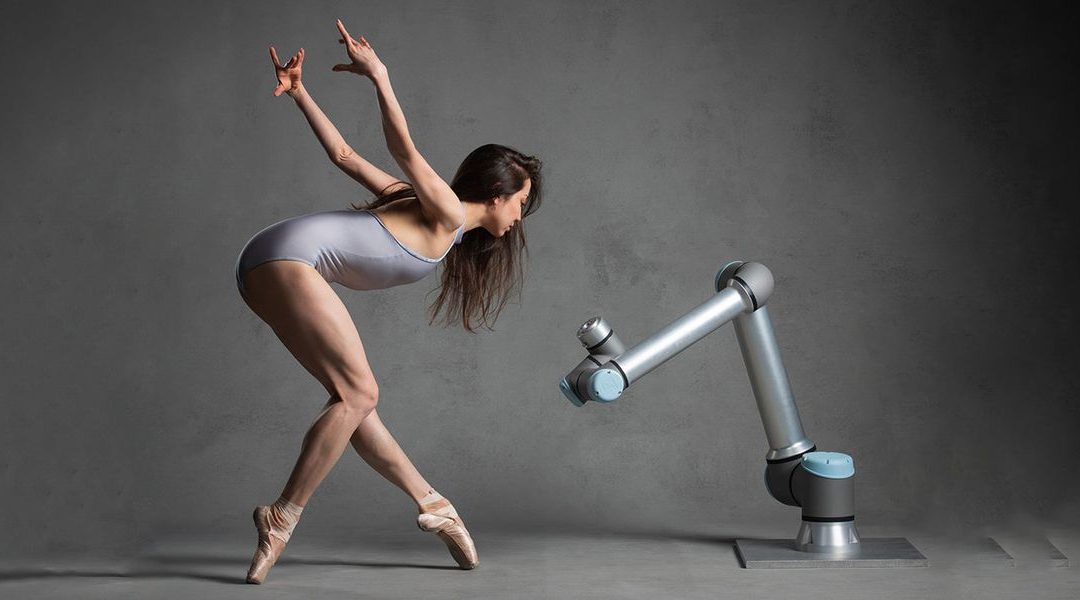
When the pandemic struck and the world was forced into lockdown, professional ballet dancer Merritt Moore found herself without a partner to dance with. Being an Oxford-trained scientist with a PhD in atomic and laser physics she programmed one herself.
Moore reached out to a robot manufacturer called Universal Robotics seeing if they had a robot for her to transform into her new dance partner. In August 2020 an industrial robot normally used for automation and manufacturing arrived at her London apartment and it wasn’t long before “Baryshnibot” was born. “Baryshnibot” is a robotic arm with several joints along it. Usually, dancing involves a lot of coordinated limb action, creating a rewarding and unique puzzle for Moore to solve. She set out to choreograph duets for her and the dancing robot. In an interview with Pointe Magazine, Moore explained that creating dances for a robot is like an elaborate puzzle.
“I have to figure out how to make this six-jointed rod emulate the dance moves of a head, two arms, a body and two legs.”

Moore started off simple, programming the robot to dance for 15 seconds to pop music. Each 15-second dance took her more than five hours to programme. One of the biggest challenges – to make the robot dance fluidly. She told Pointe Magazine:
“It’s hard to program the smoothness of circular motions. That’s when I’ll go off to the techie side, and talk to scientists to figure out how to make it more interactive.”
In November, Moore worked with director Conor Gorman and cinematographer Howard Mills to film her pas de deux with Baryshnibot called “Merritt + Robot”
Although she got some help to beautifully capture the duet, she choreographed and programmed the dance herself. In the future, Moore might be able to get some help from AI with those tasks.
In an interview with BBC Click she said:
“AI and tech and the robots can be used as a tool to inspire new creative ideas for us humans, to allow us to be more creative,”
Merritt Moore has shown the world a new use of robotics AI. She has also broken down boundaries between arts and science, presenting a new perspective that hopefully make a better and brighter future come sooner.
“I love putting a different image out there, so people see that you can be really into science and tech and also be super-creative and artsy and feminine. I like disrupting that stereotype.”
Picture: Skjalg Bøhmer Vold, Courtesy: Merritt Moore via Pointe Magazine





